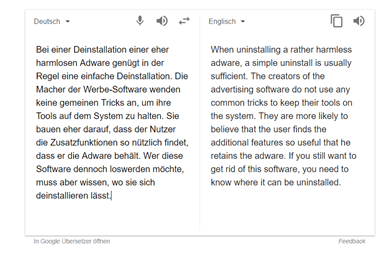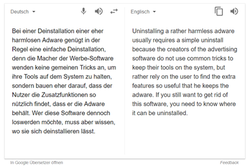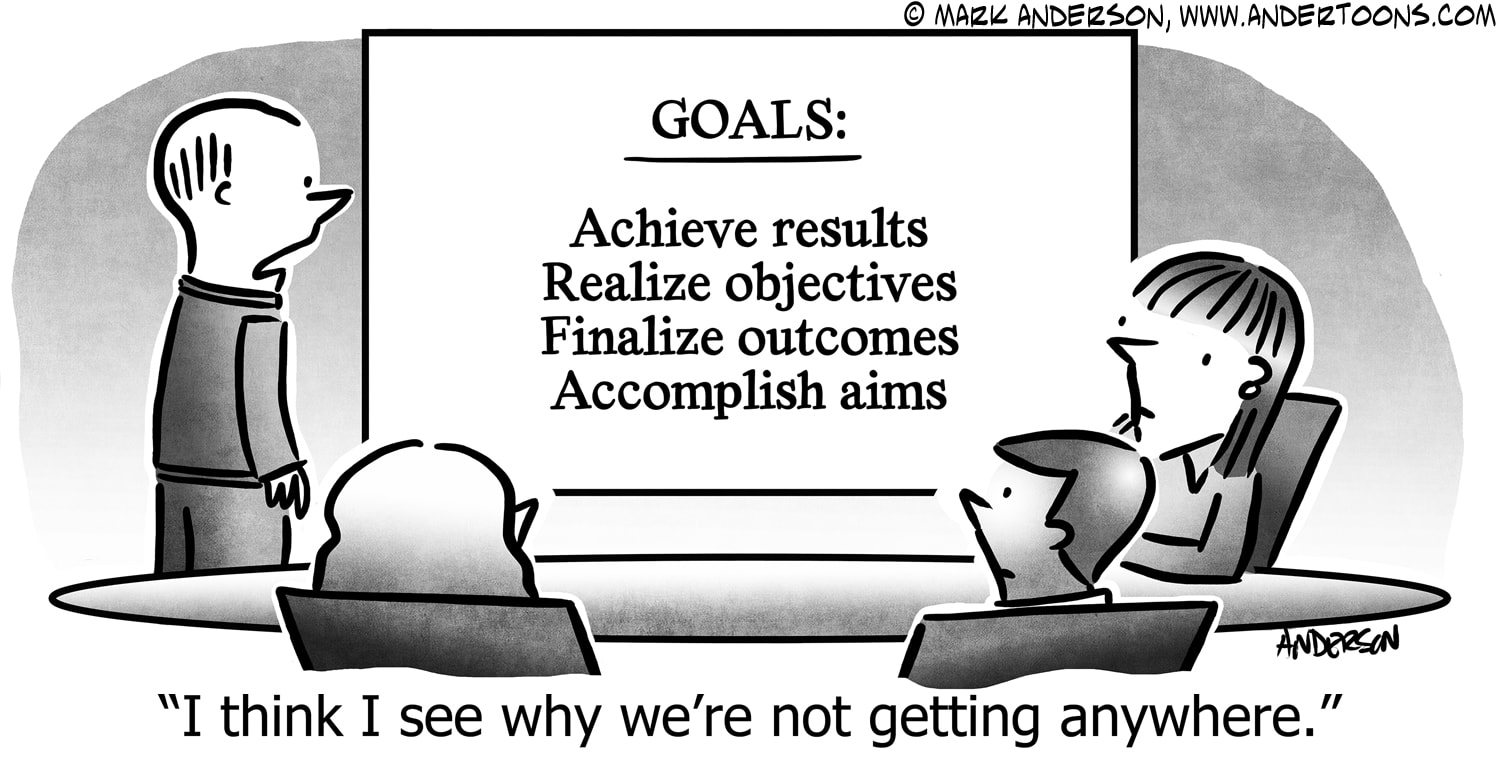
Did you know that a typo can land you in jail? Oh yes, you could end up like this poor fellow:
Walker sorgt sich um die Sicherheit seiner Freunde und wird des Mordes beschuldigt.
[Walker is concerned about his friends’ safety and is charged with murder.]
And just because someone left out a pair of commas:
Walker concerned about his friends’ safety gives himself up and is charged with murder.
In the original (source text) sentence, Walker gives himself up to the police. There is no mention of that in the translation. In fact, the translated sentence taken out of context suggests that his being concerned for his friends is the reason or cause for his being charged. (I once saw a similar sentence in which a rocket was being built, which ended up being fired (!) in the translation. More than wishful thinking.) What ever happened?
Put the commas where they should be and the reason becomes clear (and you also get a perfectly acceptable translation):
Losing bits of information is one of the most common ‘errors’ in automated translation, and one of the most annoying. And the reason is not always an erroneous input. Let’s look at another example, taken from the Wikipedia page on the serial comma:
My usual breakfast is coffee, bacon and eggs and toast.
Google translates this correctly as:
Mein übliches Frühstück ist Kaffee, Speck und Eier und Toast.
What happens if we decide do add the serial comma that groups the bacon with the eggs?
My usual breakfast is coffee, bacon and eggs, and toast.
Well,…nothing. It’s still:
Mein übliches Frühstück ist Kaffee, Speck und Eier und Toast.
The machine doesn’t understand cultural references of any kind. It doesn’t know how ‘bacon and eggs’ are eaten or that in German you could use the phrases ‘Eier mit Speck’ or ‘Speck mit Ei’ to indicate the proximity of the foodstuffs on the plate. All it does is look up the words, the frequency of appearance in a corpus and the most likely combination. Which is why the serial comma is simply ignored: it isn’t mandatory and so isn’t used by all speakers of English.
You can leave out commas to your heart’s content where there is no danger of a misunderstanding:
Your new financial friends will be abstract, obsessed with numbers [,] and keen on comparing you with your competitors.
But (!) be aware, that the machine has a creative mind of its own and will add a little variety:
Ihre neuen finanziellen Freunde werden abstrakt sein, von Zahlen besessen und darauf bedacht sein, Sie mit Ihren Konkurrenten zu vergleichen.
Deine neuen finanziellen Freunde werden abstrakt sein, von Zahlen besessen und darauf bedacht sein, dich mit deinen Konkurrenten zu vergleichen.
Apart from the fact that ‘financial friends’ is not normally translated as ‘finanzielle Freunde’, I don’t see why the comma should lead to the informal ‘du’ being used all of a sudden. Do you?
Commas also serve to indicate relative clauses. In the following sentence the noun ‘fingers’ is modified by a relative clause:
The flame on the match head danced and jumped in her fingers, which had yet to stop shaking.
The translation I received from one of the free programs available on the net was:
Die Flamme auf dem Spiel Kopf tanzte und sprang in den Fingern, die noch zu schütteln aufhören musste.
You had better be able to read German if you wanted to use this. Not only is ‘Spiel Kopf’ (not even a word) not even close to ‘match head’, but there is no subject-verb agreement, i.e. the number of the finite verb ‘musste’ is singular rather than plural (‘fingers’)! Well, you could always count this as a typo, I guess. ;-)
Perhaps the comma in the previous example caused some confusion. Let’s now look at the parentheses (or round brackets) and dashes indicating an interruption in the following sentence:
They don’t have to reveal their agenda (are they long or short your shares?) and try to tease out gossip with which to speculate.
translated as:
Sie müssen ihre Agenda nicht offen legen (sind sie long oder short ihre Aktien?) Und versuchen, Klatsch zu entlocken, mit dem zu spekulieren.
And with a dash (single or double):
They don’t have to reveal their agenda - are they long or short your shares? - and try to tease out gossip with which to speculate.
translated as:
Sie müssen ihre Agenda nicht offen legen - sind sie long oder short ihre Aktien? - und versuchen, Klatsch herauszupicken, mit dem man spekulieren kann.
In the second version (the one with the dashes) the ‘und’ is correctly reproduced in lower case and the clause ‘mit dem man spekulieren kann’ has the correct finite verb form ‘kann’. There is no obvious reason for the lexical variation. Perhaps you have an idea. I’d love to hear from you, so just write your comments in the field provided below.










 RSS Feed
RSS Feed